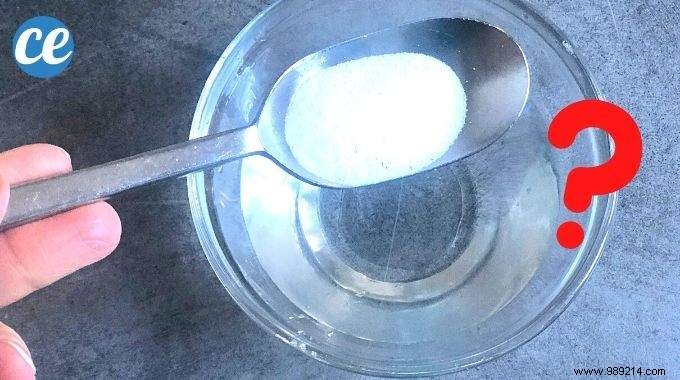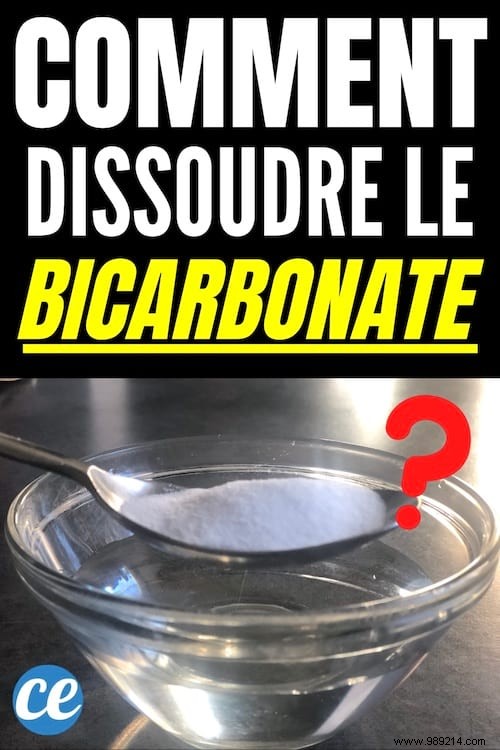
Dissolving baking soda might seem easy when you think about it.
But it's important to do it well...
Especially if you want to drink it as a remedy for stomach ache.
Otherwise you can't use the full power of this little magic powder!
Fortunately, my grandmother taught me how to dissolve baking soda in the rules of the art.
The simple thing you need to know is to respect the proportions between water and this multi-purpose natural product.
Here is the easy way to dissolve it in water. Watch:

1. Pour a liter of water into a bowl.
2. Add three tablespoons of baking soda.
3. Mix with the spoon for at least 30 seconds.
There you go, your baking soda is now fully diluted :-)
Easy, fast and efficient, right?
By using this technique, you are sure to dissolve it well .
Your homemade baking soda solution is now ready to use.
You can use it for multiple purposes:
For example to make your own mouthwash, but also and above all to facilitate digestion.
You can also wash and disinfect your fruits and vegetables efficiently or for cooking.
Feel free to soak your laundry in this solution to remove tough stains and encrusted perspiration odors.
Or, use it to relax in your bath or to care for your feet.
Be aware that the warmer and purer the water , and the higher the diluted amount can be.
In theory, up to 87 g of bicarbonate can be dissolved in 100% pure water at a temperature of 20°C.
This is its solubility limit.
But that's in theory.
Because in practice, the water we have at the tap is never so pure.
It is always more or less calcareous.
In addition, the temperature of the water that comes out of the tap is generally between 10 and 15°C.
That's why it's better to put only 40 to 50 g per liter of water.
This roughly corresponds to 3 tablespoons.